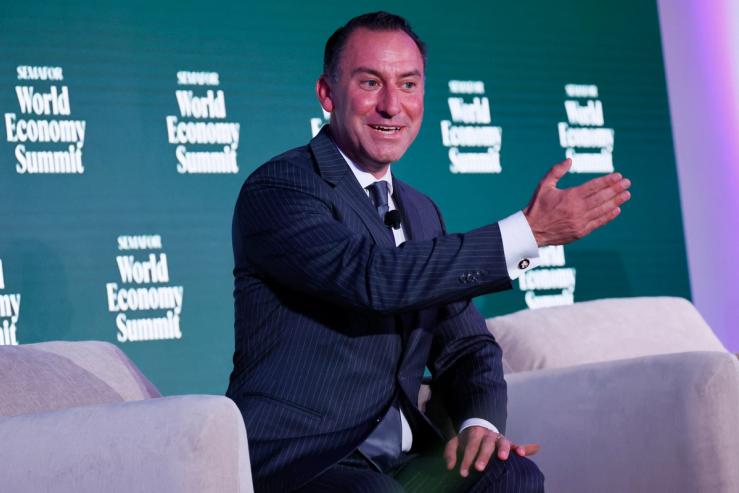US President Donald Trump’s energy policy can be summed up in the phrase, “drill, baby, drill.” But there’s a way to succeed as a renewable energy firm in the US under his administration: be American, and don’t rely on government money.
That’s according to Jarrod Agen, who advises the president on US energy strategy.
“It can’t be subsidized by the US taxpayer — the president has been 100% clear on that. And we don’t want it reliant on foreign sources like China,” Agen, executive director of the White House National Energy Dominance Council, said at Semafor’s World Economy Summit on Wednesday. “If you have American companies, and you’re not reliant on US taxpayers, that’s the hurdle to get over.”
Many components of renewable energy technologies are manufactured outside the US, and some in China. Wind and solar are among the cheapest and fastest ways to add capacity to the grid in many regions, but those suppliers are running up against policy shifts that favor baseload power like fossil fuels and nuclear. The White House has placed greater emphasis on mining operations and piping infrastructure to move fossil fuels more efficiently across the country. In recent months, Trump has reduced federal subsidies for clean energy, imposed tighter requirements on it, and fast-tracked fossil fuel projects.
Trump is checking gasoline and power prices every day, Agen said, adding that the administration is working to speed the production of fossil fuel projects to compete with solar and wind power, which are often easier to build. “That’s why we’ve changed permitting. That’s why we’ve changed some of the way we’re looking at funding,” he said.
The National Energy Dominance Council helps liaise between agencies to get refineries and pipelines approved quicker. It has also shifted funding priorities towards domestic production and security and away from reducing greenhouse gases. Meanwhile, the administration rolled back a number of National Environmental Policy Act requirements for climate impact analyses and public comments.


